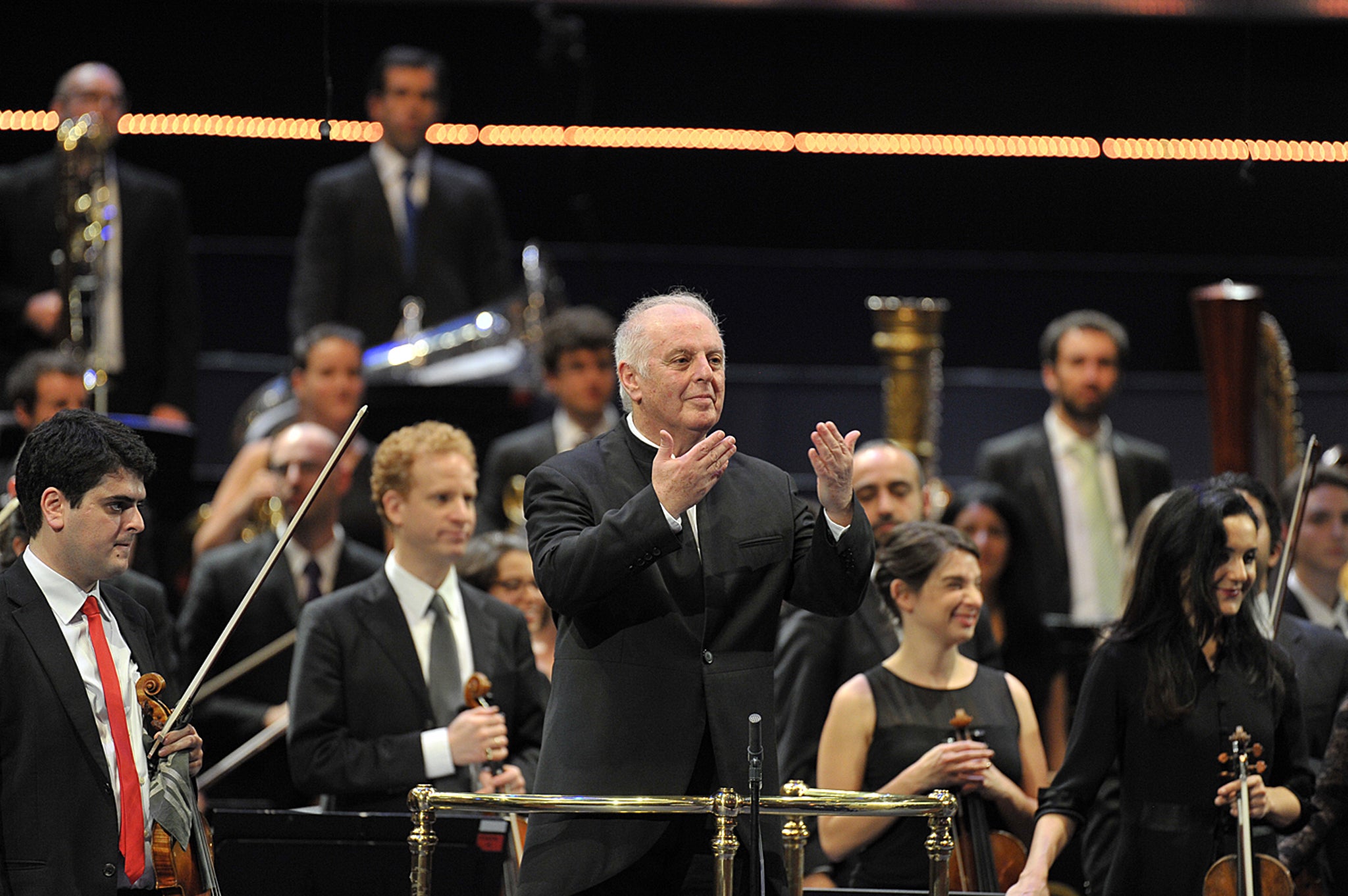Despite Gaza’s war, the show must go on
The very existence of Prom 46 was a thrilling and political event


Daniel Barenboim’s Prom with his West-Eastern Divan Orchestra, which includes young Israelis and Palestinians, was for me a thrilling and highly political event. To see, in the midst of the Gaza conflict, these young musicians from both sides of the divide making music and hugging each other at the end lifted the spirits. Yet some critics were unimpressed, noting that even though there were premières from both an Israeli and a Syrian composer, the bulk of the sunny repertoire that evening consisted of Ravel, pieces from Carmen and finally an Argentinian tango. This joyous music, they said, was insufficiently political.
I believe they miss the point. It needs neither sombre and serious music, nor a political speech from the brilliant Barenboim, to be a political event. The orchestra’s very existence and its ability to come together in a celebration of joyous music-making was in itself a huge political statement.
Which brings me to the UK-Russia Year of Culture. Who knew we were in the middle of it? It has received hardly any publicity or fanfare, and no Government ministers attend its events in an official capacity. Its director, Leigh Gibson of the British Council, tells me that in March, when the problems erupted in Ukraine, the decision was taken that Government ministers would not be involved, and the emphasis of the year of culture would change completely from being a celebration of the relationship between the two countries to being an educational and cultural series of events. The year of events continues (as indeed it does in Russia) but since March there has over here been “no active promotion of the year celebrating the relationship”.
I consider this a mistake. If these bilateral festivals are to mean anything, if culture is to mean anything, that meaning has to be widening our knowledge, learning not just about ourselves but about other people and finding that art helps us to understand. And yes, we should celebrate that. We should not keep the festival quiet. Ministers should not be studiously avoiding it. They should be shouting about it, shouting how cultural links show that even politically opposed nations can come together and understand each other better through art. Actually, that is meant to be the British Council’s raison d’être. Can one imagine Barenboim cancelling the visit of his orchestra to the Proms because of the situation in Gaza? That visit brought hope, just as a properly promoted, Government-blessed UK-Russia Year of Culture might also bring hope.
The Shaftesbury has other theatres licked
I recall being shocked when a theatre owner and producer told me she didn’t know what an ice-cream cost at her venue. The price of ice-creams, drinks and programmes are part of a night at the theatre. So it’s pleasing to see The Stage newspaper’s survey of the price of these items at West End theatres. The average total cost of a glass of white wine, a programme and an ice cream in London’s West End is £11.99. When added to the average price of the cheapest ticket (£20.36) and most expensive ticket (£81.68), a theatre-goer can expect to pay £32.35 and £93.67 respectively, when buying wine, a programme and ice-cream on top of their seat price. And the most expensive ice-cream in the West End? The award (or booby prize) goes to the Shaftesbury Theatre which charges £3.80. Memo to playwrights: more plays without intervals, please
A performance before the show even started
Last weekend, I caught one of the last “shows” by the performance artist Marina Abramovic in her long stint at London’s Serpentine Gallery. She held my hand as we walked at a snail’s pace across the gallery a “magic” seven times to clear the brain. My cultural life is complete. In the queue outside, one was handed a card with a list of the usual instructions about leaving mobile phones, coats and even watches in lockers before going in. At the entrance there was a notice with the same instructions. And once in the foyer, gallery staff assembled visitors for a short lecture, in which they repeated those instructions. At first I thought this was bureaucracy gone mad, but on reflection I realised it was the staff doing their own version of performance art.

Join our commenting forum
Join thought-provoking conversations, follow other Independent readers and see their replies